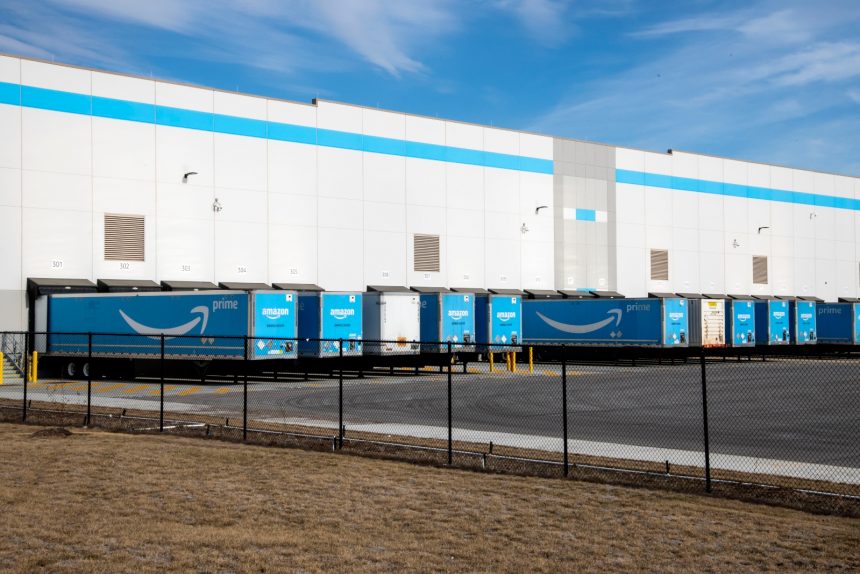The way Americans buy things has drastically changed in recent decades, largely due to the influence of e-commerce giants like Amazon. This transformation has led to the proliferation of massive warehouses across the country, resulting in increased truck traffic and environmental concerns. A recent study by researchers at George Washington University, funded by NASA, used satellite data to measure the air pollution associated with these large warehouses, marking the first nationwide analysis of its kind.
The study focused on nitrogen dioxide (NO2), a traffic-related pollutant regulated under the Clean Air Act. It found that people living near warehouses were exposed to an average of 20% more NO2 than those in other areas. Furthermore, warehouses were found to be disproportionately located in Black, Hispanic, and Asian neighborhoods, with over 250% more Hispanic and Asian residents living near large warehouse clusters than the national average.
According to Gaige Kerr, the lead author of the study, the highest concentrations of NO2 pollution are located one or two miles downwind of the warehouses. This highlights the indirect nature of NO2 emissions, which result from chemical reactions in the atmosphere caused by vehicle emissions. The study also highlighted the significant increase in warehouse size and density since 2010, driven by the growth of online retail.
The study underscored the need for policy solutions to address the health impacts of warehouse pollution. Initiatives such as electrifying trucks, phasing out older diesel vehicles, and deploying charging infrastructure near warehouse clusters can help mitigate these impacts. Furthermore, individual consumers can contribute by buying less stuff, helping reduce the overall environmental footprint of e-commerce.

The growth of online retail has fundamentally changed the warehouse industry, with larger warehouses and increased truck traffic presenting new environmental challenges. Policy interventions at various levels can help address these challenges and reduce the impact of warehouse pollution on communities across the country.
Americans can also play a role by adopting more sustainable consumption habits and supporting initiatives that aim to mitigate the environmental effects of rapid e-commerce growth.
If the provided articles seems to be less than 200 characters or it is an intro of the author, then try to generate an articles using this title: Deal of the day: New study links online shopping to air pollution






